Is Hungary pro-Russia? Country’s position on the EU, NATO and Vladimir Putin’s invasion of Ukraine explained


Hungary’s Prime Minister Viktor Orban managed to secure a fourth consecutive term in office in April after a landslide general election victory.
Whilst being popular at home, the leader of populist right-wing party Fidesz is a divisive figure on the international stage due to accusations that he’s eroded Hungary’s democracy and his expression of racist and anti-LGBTQ+ views.
Advertisement
Hide AdAdvertisement
Hide AdHe is currently attracting further controversy amongst Hungary’s allies in the EU and NATO for his stance on the Russia-Ukraine war and his relationship with President Vladimir Putin.


So what is Hungary’s position on Russia, the EU and NATO?
Here’s everything you need to know.
What is Hungary’s stance towards Russia?
Hungary’s relationship with Russia is complicated.
The country was one of the Axis powers that fought alongside Nazi Germany in World War Two - participating in Hitler’s invasion of Russia in 1941.
After the Second World War, it became a Soviet Union satellite state and was one of the founding members of the Warsaw Pact - the USSR’s answer to NATO - in 1955.
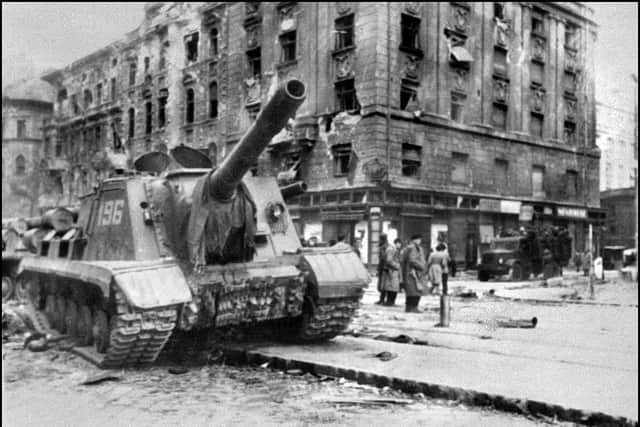

Just over a year after signing the so-called ‘Treaty of Friendship, Cooperation and Mutual Assistance’, a revolution in the country’s capital Budapest was violently suppressed by Soviet troops.
Advertisement
Hide AdAdvertisement
Hide AdThis legacy was front-and-centre when Viktor Orban first came to prominence in 1989 as a pro-Western, progressive, free market-endorsing student leader.
Soon after the fall of the USSR’s puppet government in Hungary, Mr Orban gave a prominent address at the reburial of revolutionary leader Imre Nagy during which he said: “The communists took away our future.”
But while Hungary joined NATO under Mr Orban’s premiership in 1999, he has sought much closer relations with Moscow since his 2010 re-election.
He shares a similar conservative political outlook and ‘strong man’ approach to Russia’s president Vladimir Putin, including a disdain for LGBTQ+ rights.
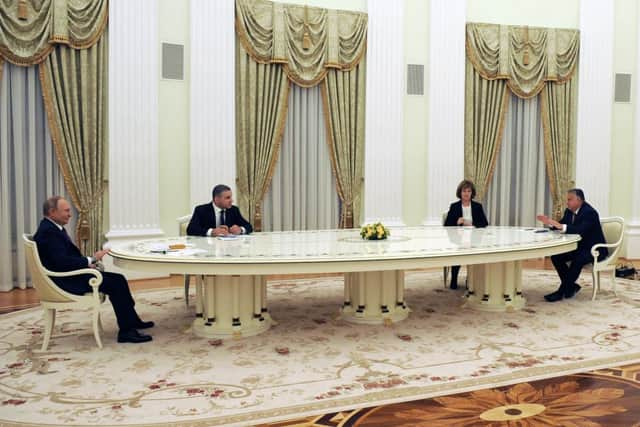

Advertisement
Hide AdAdvertisement
Hide AdMr Orban was one of the last foreign leaders Putin met before Russia’s invasion of Ukraine began.
Describing the 1 February visit to Moscow as a “peace mission”, Mr Orban traded jokes with Putin and celebrated the pair’s longevity in office.
Mr Orban even expressed admiration at the size of Putin’s notorious long meeting table.
The countries have also developed close economic ties, with Hungary relying heavily on Russia for its energy supply - around 60% of its oil and 85% of its gas comes from Russia.


Advertisement
Hide AdAdvertisement
Hide AdAt the February 2022 meeting between President Putin and Mr Orban, the Russian leader underlined the fact that Hungary pays cheap prices for its gas because of the long-term contracts it holds with Russia.
It was a clear warning to EU nations who rely on Russian energy imports but have since either been cut off from supplies or are actively attempting to reduce their dependence on Russian energy.
When Russia invaded Ukraine, Hungary did follow other European states and its fellow NATO members in denouncing Putin’s actions.
But, other than signing off on a package of sanctions, it has refused to go further.
Advertisement
Hide AdAdvertisement
Hide AdIn fact, Hungary has slowed further EU sanctions by, for example, seeking an opt-out from the bloc’s prospective oil ban.
During the Hungarian elections, the opposition accused Mr Orban of watching on while "Putin is rebuilding the Soviet empire”.
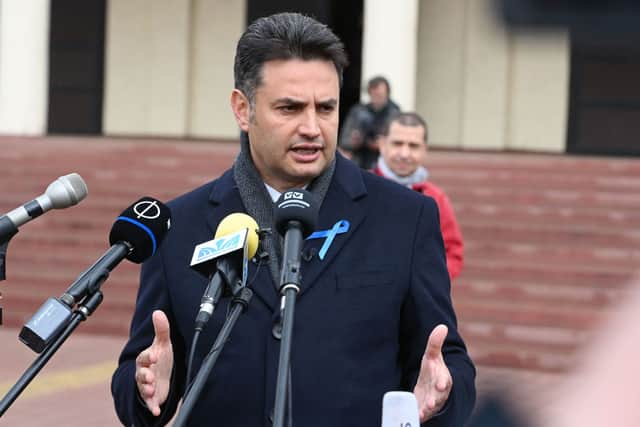

How does Hungary view the EU?
Hungary has been a member of the European Union since 2004.
Viktor Orban has consistently railed against the bloc since the 2008 financial crisis - an event which led many ordinary Hungarians to blame ‘political elites’ and mainstream politics for the failure of their country’s economy.
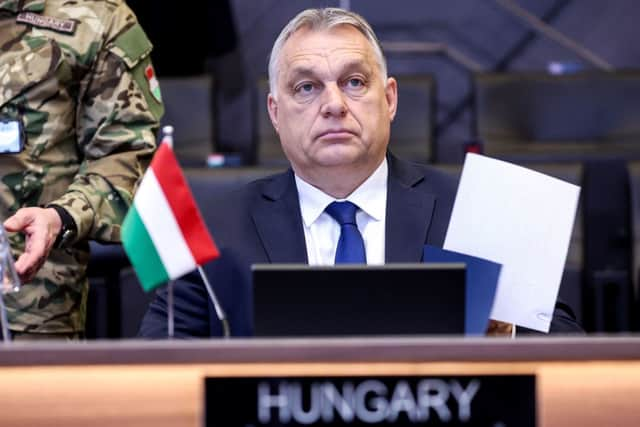

Mr Orban has fought many battles with Brussels ever since, most notably during the 2015 refugee crisis when he all but closed off Hungary to refugees by erecting razor wire and positioning water cannons along the country’s border.
Advertisement
Hide AdAdvertisement
Hide AdAt one EU meeting, former EU Commission Jean-Claude Juncker even greeted him by saying: “Hello, dictator!”
But despite holding many of the levers of power since 2010, he has never moved to take Hungary out of the EU.
Europe was a major theme of the United For Hungary opposition campaign against Mr Orban during Hungary’s 2022 election.
One of its central slogans was “Orban or Europe”, as it sought to convince Hungarians that they should angle the country westwards rather than towards the likes of Russia and China.
Advertisement
Hide AdAdvertisement
Hide AdHowever, this attempt to reset Hungary’s Europe policy has been rejected at the ballot box.
Although Viktor Orban is an anti-EU figure, he has supported the bloc’s sanctions against Russia.
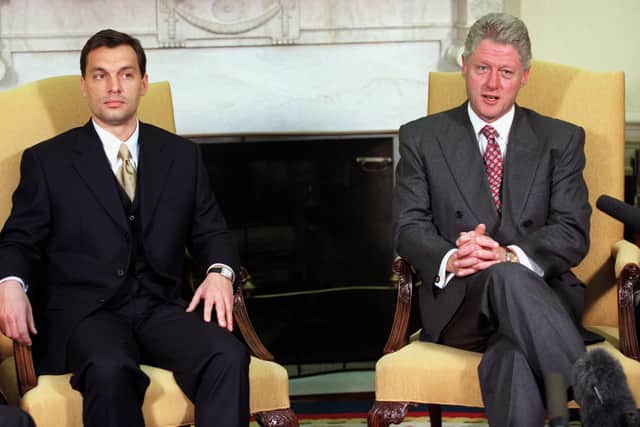

What is Hungary’s NATO stance?
Alongside former Soviet Union satellite states the Czech Republic and Poland, Hungary joined NATO in 1999.
Since the Russian invasion of Ukraine, Mr Orban has walked a political tightrope in a bid to not alienate Hungary’s allies in the West or the East.
Advertisement
Hide AdAdvertisement
Hide AdWhile Mr Orban has allowed NATO to station troops in the west of Hungary, he has forbidden any military consignments from crossing the country’s eastern border into Ukraine.
On 1 April when he was still on the campaign trail, Mr Orban claimed that supplying Ukraine with weapons would make Hungary a military target.
“This isn’t our war, we have to stay out of it,” Orban said.
This view means Hungary is the only country in the EU and NATO that has not moved to provide direct financial or military support to Ukraine.
Comment Guidelines
National World encourages reader discussion on our stories. User feedback, insights and back-and-forth exchanges add a rich layer of context to reporting. Please review our Community Guidelines before commenting.
